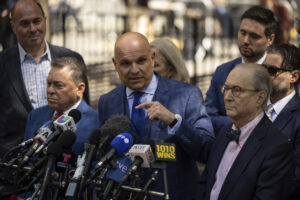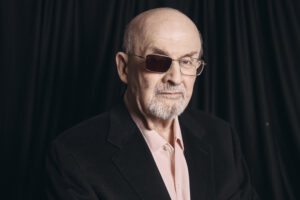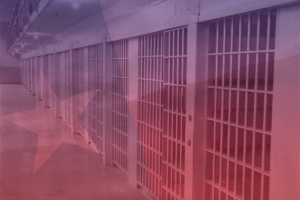Can Virginia Be Obamacized Again?
Underdogs have a natural appeal, and Democrats are lucky that Creigh Deeds will lead them in one of two gubernatorial elections this year. A small-town moderate who speaks with a twang, he will not be easily caricatured as a creature of national politics.CHARLOTTESVILLE, Va. — It was the unscripted, unpolished and precisely appropriate response from a candidate who a few weeks ago had been expected to lose and instead won a landslide victory.
In Virginia’s Democratic primary for governor, R. Creigh Deeds, a state senator from rural Bath County, had just upended Terry McAuliffe, the Democratic Party’s one-man money machine whose unbridled enthusiasm might someday make him a useful source of alternative energy.
Deeds, wearing a grin bigger than Thomas Jefferson’s Monticello mansion down the road, looked at the friendly home crowd here on Tuesday night and spoke a single word.
“Wow!” he said, and then he repeated it, and repeated it again.
Underdogs have a natural appeal, and Democrats are lucky that Deeds will lead them in one of the country’s two gubernatorial elections this year. A small-town moderate who speaks with a twang and ran strongest in the most Republican parts of the state, he will not be easily caricatured as a creature of national politics.
And to preserve a sense of political momentum, President Obama needs at least one Democratic win this fall, either here or in New Jersey, where his party’s incumbent, Jon Corzine, is well financed but embattled.
Of course, both elections will be hyped beyond their actual implications for national politics, but there is the substantive question of whether Obama’s magic can prevail when he is not on the ballot. The legions of new voters he brought to the polls allowed Democrats to sweep in 2008, yet it was also a deeply personal triumph and Obama is running a highly personalized presidency.
“One of the questions coming out of last year,” said Geoffrey Garin, a Democratic pollster, “is whether the new voters have been Obamacized or politicized. There’s a lot of evidence that a lot of the Democrats who were extremely enthusiastic and energized in 2008 were really focused on Obama as opposed to politics more broadly.”
Virginia is a case in point. The 2008 turnout here was up by more than 500,000 over 2004’s. John McCain got more votes than George W. Bush did four years earlier — and still lost the state by more than 200,000.
Young people were the key. According to a reanalysis of the 2008 exit poll, 24 percent of Obama’s Virginia ballots came from voters under 30 (compared with 18 percent of McCain’s). Most of Obama’s victory margin was provided by these young voters.
Can Deeds produce a sufficient surge when he faces Republican Attorney General Bob McDonnell in the fall?
The troubling news for Democrats is that turnout in Tuesday’s Virginia primary was anemic by most standards — just over 6 percent of eligible voters — though this year’s contest did bring more voters to the polls than a 2006 U.S. Senate primary that propelled Democrat Jim Webb to victory.
And with a victory straight out of the political consultant’s playbook, Deeds will lead a united party. McAuliffe dominated the race early with his money and garrulous vigor, but also generated a quiet backlash among voters who saw him as an ambitious outsider using their state.
The former Democratic national chairman’s entry into the race threatened the candidacy of Brian Moran, a well-respected state legislator who shared a base with McAuliffe in northern Virginia and had been favored over Deeds before McAuliffe got in. So Moran went after McAuliffe and, bolstered by a timely endorsement from The Washington Post, Deeds punched through the middle.
Rep. Tom Perriello, a freshman congressman whose surprise victory last year in a Republican district was another sign of the Democrats’ spreading strength in the state, nicely summarized the dynamic. “Number Two took out Number One, and Number Three emerged,” he said in an interview at Deeds’ victory party. And almost everyone felt affection for Number Three.
In what is likely to be a preview of their strategy in the 2010 congressional elections, Republicans hope that a reaction against high spending levels under Obama will bring conservative Virginians back to their political roots.
“All this activity in Washington is going too far,” said Christopher Peace, a Republican state legislator from the Richmond suburbs, “and we need to take an inventory and go in a different direction, at least in this state.”
But in his victory speech, Deeds had a partner in mind for his Republican opponent and he denounced “the disastrous economic and social agenda of Bob McDonnell and George W. Bush.” Who better than Bush to Obamacize Virginia’s electorate at least one more time?
E.J. Dionne’s e-mail address is ejdionne(at)washpost.com.
© 2009, Washington Post Writers Group
Your support matters…Independent journalism is under threat and overshadowed by heavily funded mainstream media.
You can help level the playing field. Become a member.
Your tax-deductible contribution keeps us digging beneath the headlines to give you thought-provoking, investigative reporting and analysis that unearths what's really happening- without compromise.
Give today to support our courageous, independent journalists.






You need to be a supporter to comment.
There are currently no responses to this article.
Be the first to respond.